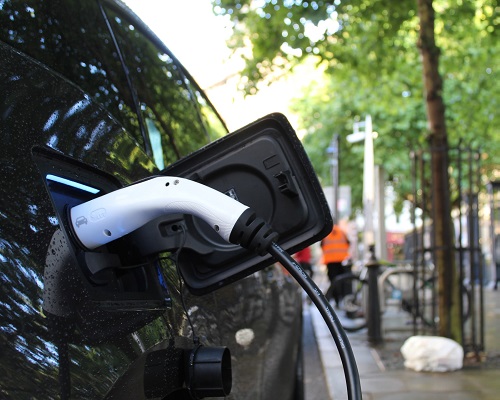<< Research Projects Overview << Year Four Projects Overview
Identifying and Optimizing Electric Vehicle Corridor Charging Infrastructure for Medium and Heavy Duty Trucks

Assistant Professor, Department of Civil, Environmental, and Geo-engineering
University of Minnesota
akhani@umn.edu
Angela Piner
Subcontractor
HDR Consulting
Angela.Piner@hdrinc.com
Research Associate Professor, Department of Civil, Environmental, and Geo-engineering
University of Minnesota
hourd001@umn.edu
Proposal Summary and Objectives
Transportation account for approximately two thirds of Greenhouse gas (GHG) emission. In Minnesota, about three thousand deaths are attributed to air pollution annually. Electric vehicles (EV) have emerged in the last few years with promise to provide less noisy and cleaner transportation systems. Minnesota Statute 174.01 directs MNDOT to reduce GHG from transportation sector. To this end, personal EVs are penetrating the market and electric buses are being adopted by transit agencies, both with some levels of power infrastructure. However, electric trucks are still in the prototype stage and very little effort has been put on studying their infrastructure needs nationwide. In order to address the lack of infrastructure planning for e-trucks, this project will investigate the infrastructure needs for e-trucks in the future. The research team will study freight volume and e-truck implications on freight traffic, and the characteristics of power grid from conventional and renewable sources. By developing a database of various infrastructures, energy demand and supply, and conducting geo-spatial analyses, candidate corridors for e-truck infrastructures will be identified and discussed with a technical advisory panel. With the objective of providing required charging service at minimum capital and operating cost, an optimization model will be developed to determine the location, type, and capacity of charging facilities on the identified corridors. Along with the optimal infrastructure planning, renewable energy sources such as solar and wind will be considered for supplementing the conventional grid. The results of this study will provide guidelines and suggestions for long term decisions toward clean freight transportation in and through Minnesota.
Funding Amount: $99,854
Status: Active
Duration: Sep 1, 2020 - Jul 30, 2021